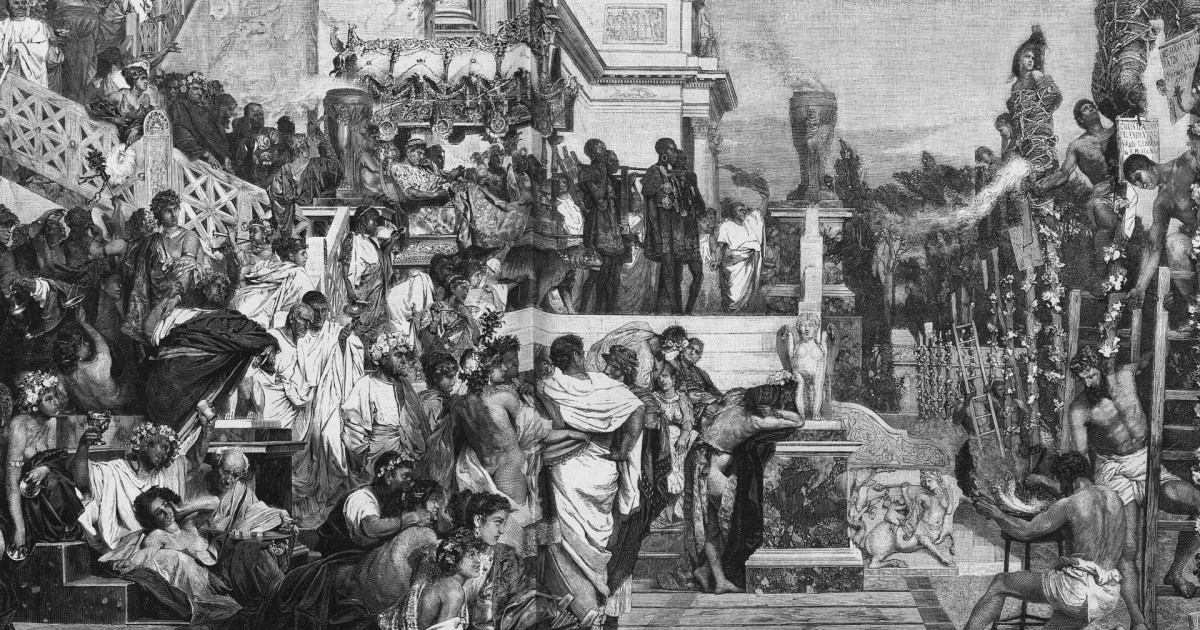Is it time for two thousand years after the fire of Rome to review the long-held historical account of the Roman Emperor Nero?
In this report, the British newspaper "The Times" says that new research has concluded that much of what was said about the Rome fire was not true, and that Nero was a victim of deception, intrigue and distortion.
The Great Fire of Rome
The newspaper says that Nero was known since ancient times for his bad reputation, cruelty and narcissism, and was seen as an example of corruption, tyranny and sadism.
The most famous event is considered to be the period of Nero's reign (54 to 68 AD), the Great Fire of Rome in the summer of 64. Many historical accounts indicated that the Roman Emperor enjoyed watching the fire, and it was perhaps he himself who set it on fire.
The Roman historian Suetonius, born in AD 69, claimed that Nero was playing the strings of his lyre and singing as he watched his capital burn.
The English historian Edward Gibbon (1737-1794AD) - in his book The Decay and Fall of the Roman Empire - accused Nero of starting the fire, which has long been believed to have destroyed two-thirds of the city of Rome, and that only 4 of Rome's 14 provinces survived.
The fire had started from the Circus Maximus, before it got out of control for a while and broke out in the nearby shops, and according to historical sources, Nero was away from Rome when the fire broke out and returned to the city and issued decisions to accommodate refugees in parks and public buildings before he rebuilt the burned neighborhoods and built his new palace .
Alternative novel
English archaeologist and historian Anthony Barrett believes - in new research on the Great Fire of Rome - that the facts were deliberately falsified, and that the fire was not so massive as it was said.
Barrett asserts that the fires consumed only about 15% of the city of Rome, and that the fire not only destroyed the poor neighborhoods - as historians had long assumed - but also the homes of the aristocracy.
The English researcher adds that Nero at that time imposed large taxes on the elite to cope with the emergency, and began rebuilding the city.
Within 3 years of the outbreak of the fire, the elite unanimously agreed to expel him from power, and began to write history according to its vision, which made Nero for two thousand years a victim of distortion and falsification of facts.

